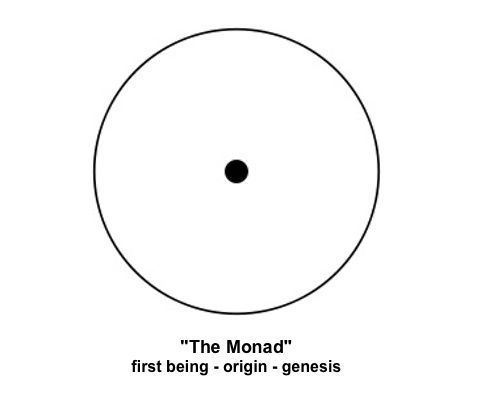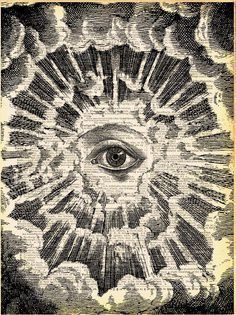6.2 - Why God?
I know that the world looks like this because it is our eyes that see; because it is our taste buds with which we taste; because everything simply follows its laws. On the other hand, I know that "there is more!" because we as humans cannot grasp everything.
The human brain is not designed to understand the universe. Our brains developed out of the need to survive on the plains of Africa, and often react, um, let's say ... weird, when confronted with things like "life, the universe and all the rest" - 42 - or as astrophysicist Neil deGrasse Tyson put it so beautifully:"I actually wonder if the human intellect is sufficient to really decipher the entire operations of this universe in which we live - and that's not specifically an astrophysical question.... it's just... we are an intelligent species,
because we define ourselves as such.
We don't have the advantage of another species to compare ourselves to and fail miserably against. So when we compare ourselves to chimpanzees, we sit up self-righteously and say ... we have poetry ... and the "Hubble telescope" ... and philosophy, and the chimpanzee just stacks up banana boxes to get to a banana - and yet there's just that one percent difference in our DNA. Then you'll ask, "What difference does one percent make?" and I would say, "...Maybe the difference of that one percent in DNA is equivalent to an equally small difference in intelligence between a chimpanzee and humans."
Imagine a species visiting us that is one percent smarter than us on the same scale. (...) Perhaps it is obvious to them what dark matter and dark energy is, perhaps the appearance and disappearance of particles is a trivial exercise for them in their understanding of the multidimensional space-time continuum, and here we are groping our way to the sides of a wall without knowing how high, wide or deep it is, because we have developed the limits of human physiology from the plains of Africa just to try to understand the entire universe.
https://youtu.be/F200wpEpJ4w
...so I lose sleep on that question every night
Maybe we are not smart enough. (...) I often think about the questions we don't yet know how to ask, because discoveries have yet to come. (...) When I lie awake again at night, I think about what questions are beyond our reach, because the questions we even know how to ask don't even interest me anymore, because we knew how to ask that question. I want to know the question that's out of everyone's reach, and by definition I can't because we haven't gotten there yet, but that doesn't mean I shouldn't dream about that frontier."
- Neil deGrasse Tyson
Until we have traveled to the edge of the universe and looked over the edge, I believe in God. And when the time does come and there is *EVEN MORE* out there, yes, even more so.
Whoever can provide me with a genuine, authentic paradox, then the existence of God should serve as the explanation, because whoever or whatever is able to make the paradox (the impossible) a reality must be God. Nothing else can be used as an explanation. Then I also want to be willing to accept God.
Well... and then we have this self, this ominous self, which turns out to be "nothing" because it cannot be localized and is therefore untraceable and at the same time is supposed to represent "all this here", i.e. the universe experiencing itself.
(If you don't know what I'm talking about, see from -> "Chapter 2 - Self-discovery" to "Chapter 2 - Conclusion" and for good measure: "Chapter 4.3 - All This Here")
I don't know if I can explain it properly - A real paradox, I don't mean nonsense, like optical illusions for example. I mean impossible things, like if you were able to show me a zero-dimensional point, because actually showing me a zero-dimensional point is an act of impossibility, at least here in this universe.
\\\The self is paradoxical\\\ But what I actually want to say in this chapter is that I do not believe in such a God as God is described in the Bible - or dare I say provocatively - "your God" would then be disqualified for me in my understanding of divinity.
There were the Gnostics. "Gnosis" is the Greek word for knowledge / cognition. Gnosticism is a branch within Christianity in which it was recognized that this God, as God is described in the Bible, is flawed and therefore cannot be God.
I don't really want to go into that much depth, simply for the sake of clarity. So I'm not going to delve into the world of Gnosticism with you and introduce you to the "pneuma" or explain what "eons" are, "monad" would also be another term to look up

You see...
There is some evidence that God, as described in the Bible, is fake, and Gnostics, i.e. knowledgeable people, want to have recognized this.
Gnostics called such a god a "demiurge", a god of low rank, characterized by deficiency. This god, as God is described in the Bible, is said to have conspired with the devil when it came to Job's faithfulness to God. This biblical God agreed to the murder of Job's children. This would be a serious matter, because if there was a higher authority that was above this biblical God and instructed him to make amends for such deeds (which is what eventually happened - good for Job - bad for every demiurge), this would be a further indication of deficiency. An indication, therefore, that this God, as God is described in the Bible, must be a demiurge. Incidentally, Job's faithfulness to God, which is what I understand by God, was unbroken and he was richly rewarded at the end of his ordeal.
Gnostics therefore want to have recognized this demiurge as such. And that is of course a problem in the search for God, because what form does a perfect "entity" take if not that of a demiurge? Gnosis, i.e. knowledge / cognition, claims to have found an answer to this. God is what is referred to as "Monad", from the Greek: "Unity", "The Absolute", "The One". The only true capacity of this entity, which is of the only real, absolute existence, is thought itself (whereby the word "thought" should perhaps not be taken too literally - rather meant as "thought into reality" - or perhaps even better: the capacity "to make reality conceivable").
If you want to know more:
https://youtu.be/o9lH153uhic
But because I am looking inwards and constantly experiencing myself more and more, I am now beginning to understand what they mean when they say that God's NAME is inexpressible. It is simply the knowledge that there is something intangible in a tangible world. The unnameable. That is even closer to us than anything else in the world, and yet furthest away from us. Somewhere in between, that's where I am. And you. And everyone. And I think that makes it worth believing in miracles. I don't believe in a city in the clouds or a hell beneath the earth. I believe in the self-reflective universe, that's where I see divinity.

(The self-reflective universe is supposed to symbolize this. I found it when I searched for the term "transcendence" in Wikipedia. Otto van Veen, emblem "What no eye has seen and no ear has heard" (1 Cor 2:9))
***
Basically, I believe that if it is to be divinity, it would both look at itself through ~ your eyes ~ and become self-aware of its divinity; that when you look out into space on a starry night, that universe exists once out there and somewhere deep within yourself. What the Bible is talking about - I think - when it says "the kingdom of God is within each of us".
For most of my life I was agnostic. Ignorant. However, since my perspective has generally changed in many ways, I am certain that we are simply part of something much bigger. The first chapters of this story could hardly describe more aptly what I believe in.
Perhaps it really does mean that only the one true thing is to be worshipped; and you won't find this somewhere here or there. Nor will it be something as primitive as the god of money or something like that. In here, where the laws of space and time cease to make sense, that's where I hope to find "God".
And also in you.
Bạn đang đọc truyện trên: AzTruyen.Top